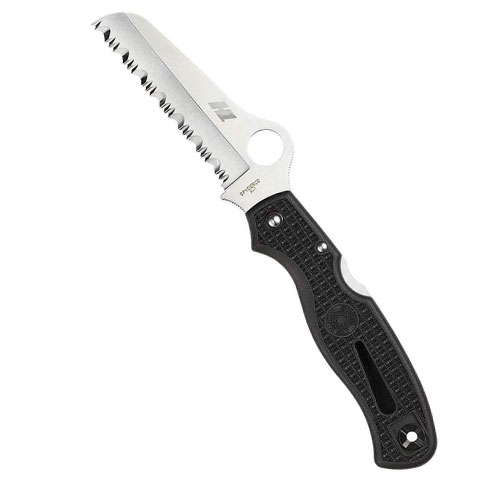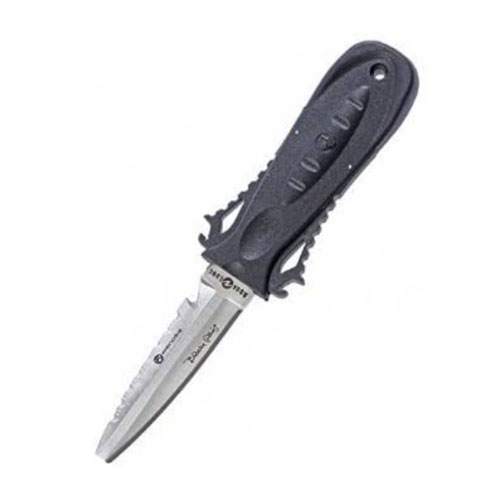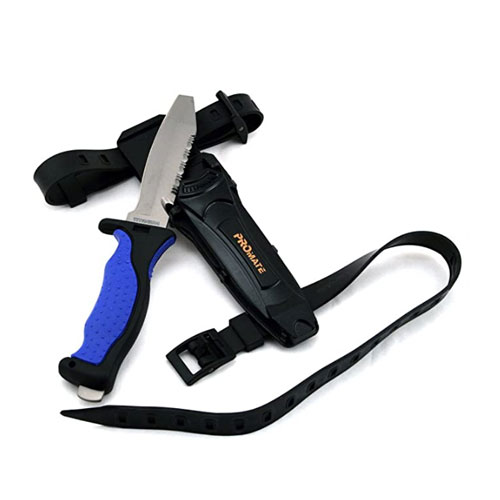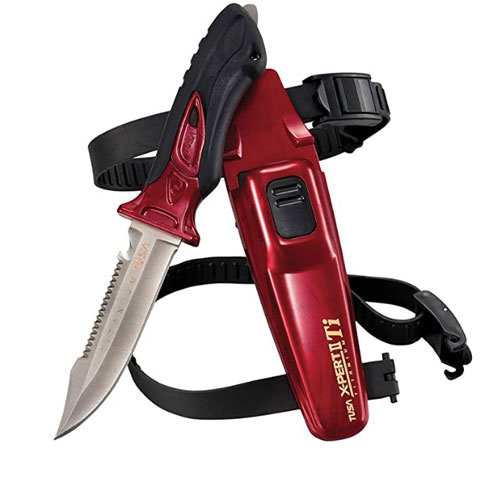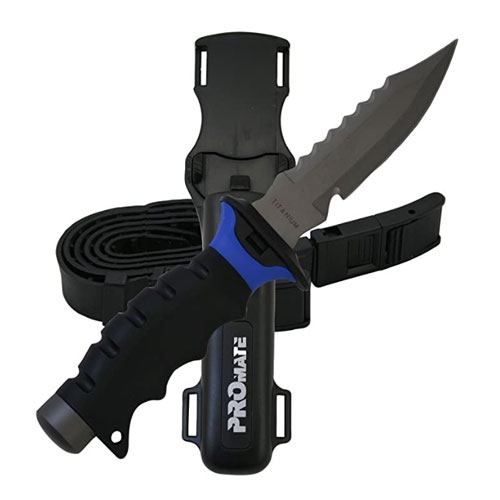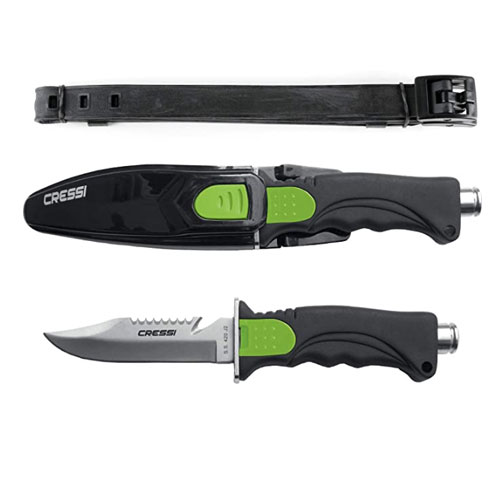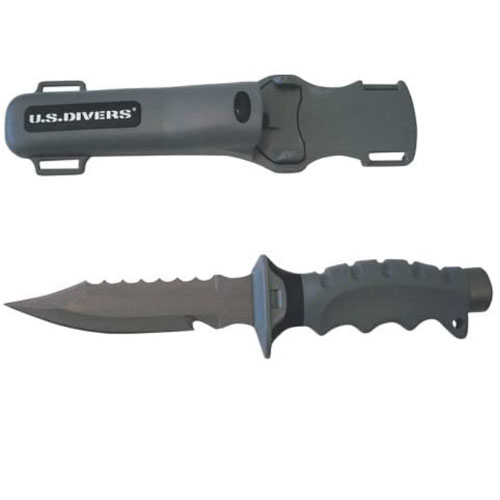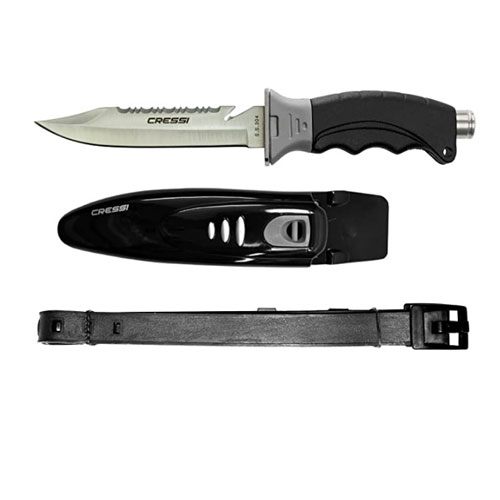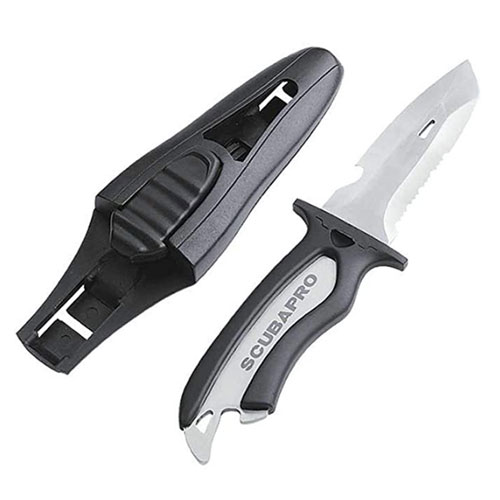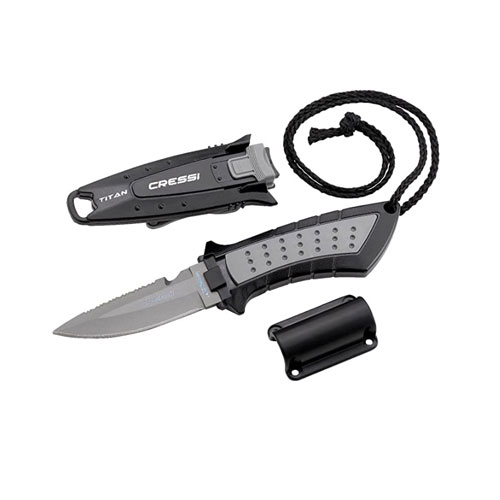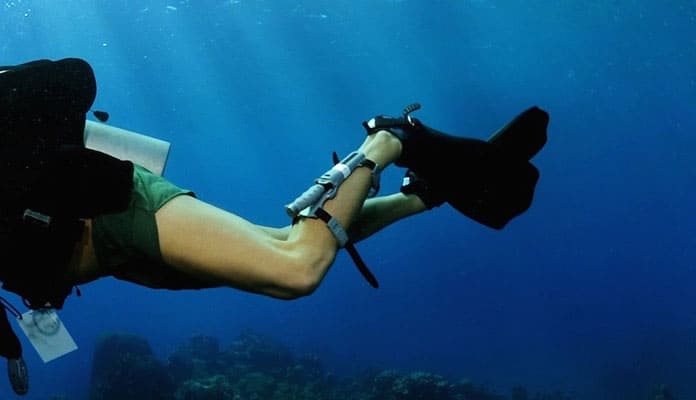
-
1.
-
2.
-
3.
-
4.
-
5.
A dive knife has always had a lure in action movies. Scenes of underwater fights and attacks by monster marine life have been featured in many movies. In reality, a dive knife is not a weapon, it is a safety tool. Dive sites are often attractive fishing sites as well. Sadly, fishing lines and fishing nets are often lost on reefs and wrecks. Being hard to see, a diver can become entangled in a line or net. A good quality dive knife will be needed to untangle a caught diver. A knife may provide other functions as well.
Dive knives are used in a different environment than your typical kitchen knife and require special features. We have researched to find the top 10 best dive knives of this year.
Our Divers at work
We gave our Scuba Instructors one job:
Test 19 different Dive Knives and write reviews of the best.
The result is 10 of the best Scuba Diving Knives on the marked today.

Our Divers at work
Scuba Instructor and Writer at globosurfer.com

Our Divers at work
Editor at globosurfer.com
Torben is a dive nut, with a passion for traveling and gear.
OUR TOP PICK
Spyderco Atlantic Salt Edge Knife
- What Makes This Knife Stand Out
- Will not rust
- High-end steel blade
- One hand capabilities
- Lightweight
Blade Length: 3.5”
Handle Length: 4.5”
Materials: H-1 steel, nylon, fiberglass, titanium
EDITORS CHOICE
Aqua Lung Squeeze Lock SS-Knife
- Stand Out Features - Why We Love It
- Quick-release mechanism
- Compact design
- Serrated and flat edges
- Blunt tip
Blade Length: 3”
Handle Length: 3.5”
Materials: Stainless Steel
BEST VALUE
Promate Titanium Scuba Knife
- Stand Out Features - Why We Love It
- Easy-grip handle
- Corrosion-resistant
- High-end material
Blade Length: 4 ⅜”
Handle Length: 5 ”
Materials: Titanium blade with rubber molded handle
Tusa FK-940ti X-Pert II Knife
- Stand Out Features - Why We Love It
- Serrated and flat edge
- Sheath and leg strap included
- Titanium blade
- Able to be disassembled
Blade Length: 4.5”
Handle Length: 5”
Materials: Titanium
Promate Barracuda Sharp Tip Titanium Knife
- Stand Out Features - Why We Love It
- Hammer on handle
- Serrated and flat edges
- Sheath and strap included
Blade Length: 5”
Handle Length: 4.5”
Materials: Titanium
Cressi Skorpion Knife
- Stand Out Features - Why We Love It
- Corrosion-resistant
- Blunt and sharp tip option
- Easy release sheath
Blade Length: 4.33”
Handle Length: 5.08”
Materials: Stainless steel blade
- Stand Out Features - Why We Love It
- 2-year warranty
- Stainless steel butt cap
- Leg straps included
Blade Length: 5”
Handle Length: 4.5”
Materials: Titanium blade
Cressi Borg, Long Blade Diving and Spearfishing Knife
- Stand Out Features - Why We Love It
- High-quality blade
- Technopolymer grip
- Sheath and strap included
Blade Length: 5.5”
Handle Length: 5”
Materials: 304 Stainless steel, technopolymer
Scubapro Mako Titanium Knife
- Stand Out Features - Why We Love It
- Corrosion-resistant
- Cutting notch
- Lightweight design
Blade Length: 3.35”
Handle Length: 4.14”
Materials: Titanium blade
- Stand Out Features - Why We Love It
- Non Slip grip
- Compact design
Blade Length: 2.95”
Handle Length: 3.35”
Materials: Japanese 420 Stainless steel blade
- Many dive knives have a blunt end for safety. Alternatively, dive knives constructed with a pointed end allow the diver to cut into smaller spaces and tougher materials. An easy solution is to buy a folding knife with a pointed tip that can be easily mounted to your gear and deployed underwater.
- Your knives handle should not only be comfortable, but it should also be constructed with a slip-resistant material to keep yourself from slipping and cutting your hand.
- Whether you prefer to attach your knife onto your BCD or your body, make sure it’s easy to reach with both of your hands. If your right hand is getting tangled somewhere, you’ll need to be able to reach your knife with your left - and the other way around.
![]()
Scuba Diving Expert
How To Choose The Best Dive Knife – Buying Guide
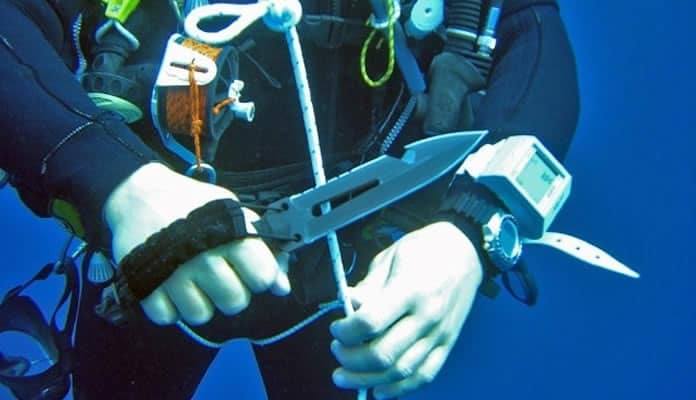
Size
Bigger isn’t always better when it comes to the best dive knives. The blades of dive knives generally range from 3 to 6 inches, however, we find that the 3.5 to 5 inch is the perfect size blade. This gives you enough travel to easily cut rope or other material and still be compact enough to carry around without too much added bulk. Also, you should know if there are any local restrictions on the length of a blade you can carry on you.
Edge
There are two main types of blade edges. Most divers believe that the best dive knife should have two edges. One edge of the knife should be straight while the other serrated. If you have to choose between these features look first for a serrated blade. It will be able to cut through tougher material and stay sharp longer. Also, a line notch is a good feature. A line notch makes cutting the fishing line easier.
Material
Normal knives do not need to stand up to the harsh environment of the ocean. Different materials will react with the salt and could cause rusting. We suggest looking for a knife that uses a stainless steel or titanium construction.
The stainless steel option will require regular maintenance and sharpening. A lower number, around 300, will indicate a higher-quality knife but will be harder to keep sharp due to the high carbon count. You will have to rinse these dive knives after each use and even apply oil or wax to keep them from corroding.
A titanium blade is a much higher quality and cost knife that requires minimal maintenance. The only drawback to these knives is that they are hard to sharpen but the best dive knives shouldn’t require sharpening that often. This option will not rust or deteriorate over time and will be what you need at all times.
You might also like: Best Scuba Masks With Purge Valve
Tip
Dive knives can have a pointed or dull tip. Some will appreciate a blunt knife, so they don’t puncture things they don’t intend to while others may need that option. Blunt knives can be useful as a screwdriver and can pry better. Pointed tip knives can get into smaller spaces.
Attachments
Most knives will come with a sheath and way to attach so you will not lose it. This could be as simple as a loop to allow you to strap it to your suit. Others come with a strap that allows you to attach it to your leg or thigh. This will give you quick access to the knife while having it out of the way.
FAQs
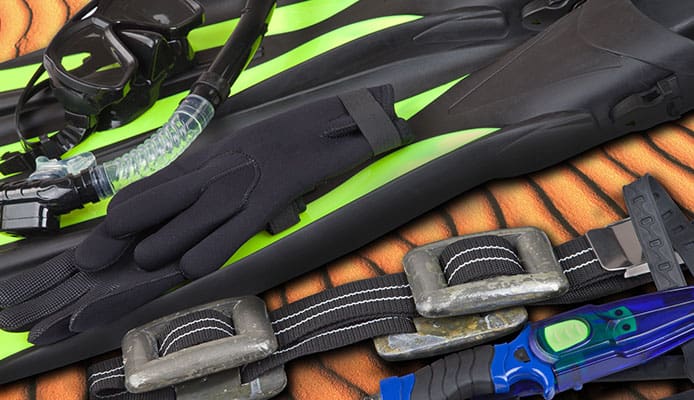
Q: What Are The Advantages Of A Good Diving Knife?
You never really know when you are going to need your knife under the water, and a good diving knife can be the difference between life and death. Having a good knife means having a knife that is strong and sharp. You want the best dive knife which can be easily removed from its sheath and one which is easy to handle under the water. So, what situations could you run into?
The most obvious one is being attacked by a creature under the water. Okay, just joking. The possibility of a marine animal attack where you could defend yourself with a knife is very low.
The most common situation in which you may need a knife is when you need to cut something. The most obvious occurrence would be when you need to cut some rope or string. Cutting abandoned fishing lines is a common use.
Q: How To Take Care Of Your Dive Knife?
After having your knife under the water, especially if you are diving in saltwater, you should clean your knife. The best thing to do is to rinse your knife under some fresh water and let it dry before putting it back in its sheath. If the knife has any dirt on it, then you should wash the knife with some soapy water (making sure to keep your fingers away from the blade) and then rinse it with fresh water before letting it dry.
If you are putting your knife into storage for a while or you will not be using it for a while, then you should apply some oil to your knife. Find an oil that is specifically designed for use with the best dive knives, although you can also use the oil you may have around your houses, such as olive oil or canola oil. Make sure to only apply a thin layer of oil to the blade and then place it in the sheath.
You should also sharpen your knife when needed. Check your knife regularly for any chips, and use a sharpening stone to take any chips out and then sharpen and polish the knife.
Q: Titanium Or Stainless Steel Dive Knife?
Titanium dive knives have better resistance to corrosion than stainless steel knives. Titanium knives are almost rust-proof. There is no carbon in the knife for oxidization. This means that you will not need to maintain your knife as you would with a stainless steel knife. Titanium is also a lot stronger than a stainless steel knife, and it is lighter. Why, then, would you even want to buy a stainless steel knife? Well, stainless steel knives are also resistant to rust, and, while they are not as light or strong as titanium knives, they cost a lot less.
Q: Blunt Tip Or Pointed Tip?
Q: What if I do not like knives?
Not everyone likes to carry a knife, and it might even be illegal to do so. There are other safety devices that you can use instead. The Dive Rite Line Cutter w/Sheath is a great tool to cut fishing lines and it is very small. Line cutters are based on a design of tool parachutists who have to cut their lines in a hurry. The Innovative Scuba Sea Snips is another adapted tool. These are the same tools that hospital workers and EMTs use to cut clothing and other items. They are super strong and will not rust. I am willing to bet anyone who owns a pair of sea snips, has cut a penny in half with them. Yes, they are that strong.
Globo Surf Overview
When scuba diving, it is highly recommended that you take every precaution possible. A dive knife is an important safety tool. As typical dives are in saltwater, having a corrosive-resistant knife is important to ensure full functionality.
Having the best diving knife will ensure that you can cut your way free of fishing wire or rope when underwater should that situation arrive. As a bonus, these knives are sharp enough to be doubled as a fisherman’s knife.
More Scuba Reviews:
- Dive Camera
- Bcd For Beginners
- Full Face Scuba Mask
- Dive Watches Under 200
- Dive Watch Under 1000
- Dive Watches Under 500
- Ladies Dive Watch
- Underwater Scooter
- Scuba Regulator
- Cold Water Regulator



